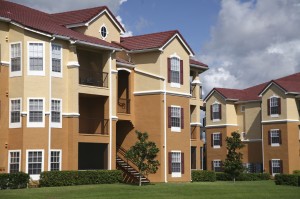
The Multifamily Production Index was positive for the third straight quarter, as the multifamily housing sector continued to put up promising numbers.
The Multifamily Production Index, the National Association of Home Builder’s (NAHB) measure of builder sentiment in the apartment/condominium market, was positive again in the third quarter with an index level of 52.
That’s the third straight quarter that the Multifamily Production Index was higher than 50, which means that more builders see conditions as good than bad.
Multifamily Productions Index – A Surging Market
The Multifamily Production Index covers three different facets of the multifamily housing market, and as the NAHB found, all the areas suggested good things:
- The market for builder/developer perceptions of market-rate rental properties let the market with a very impressive 69; for five consecutive quarters now, that segment of the index has been greater than 60, which is its strongest performance since the very creation of the Multifamily Production Index in 2003.
- For-sale units, which tracks builder sentiment in the condominium market, had its highest reading since the fourth quarter of 2005 with 44, and low-rent units had a rating of 46.
- Also, the Multifamily Vacancy Index, which measures builder perception of vacancies, held low at 33; since peaking at 70 in the second quarter of 2009, the MVI fell throughout 2010 and has been low ever since.
W. Dean Henry, the chairman of the NAHB’s Multifamily Leadership Board, said new household to the Multifamily Production Index’s progress.
“The market-rate apartment and condo markets continue to improve as household formations generate demand,” Henry said. “As young households find sustainable employment, most are renting in new apartment communities.”
David Crowe – 2013 to See “Steady Growth” for Multifamily Housing
David Crowe, the chief economist for the NAHB, noted that the multifamily housing market has “recovered substantially” since bottoming in 2010, and strong consumer demand has brought the market 70 percent of the way back to a sustainable level – and if economic indicators are of any accuracy, those numbers will continue into 2013.
“Our baseline forecast calls for further steady growth in the rate of multifamily production,” Crowe said.
